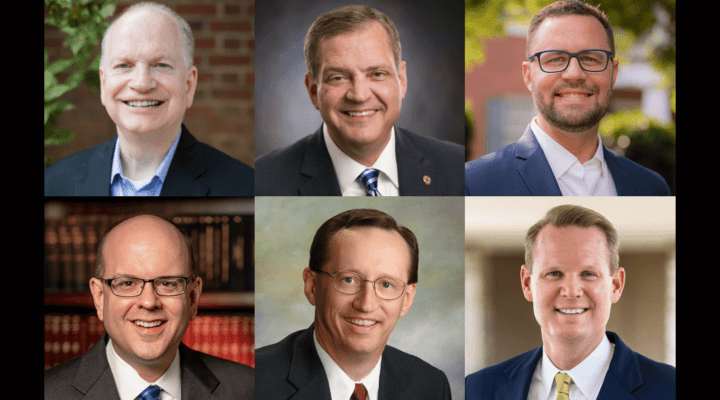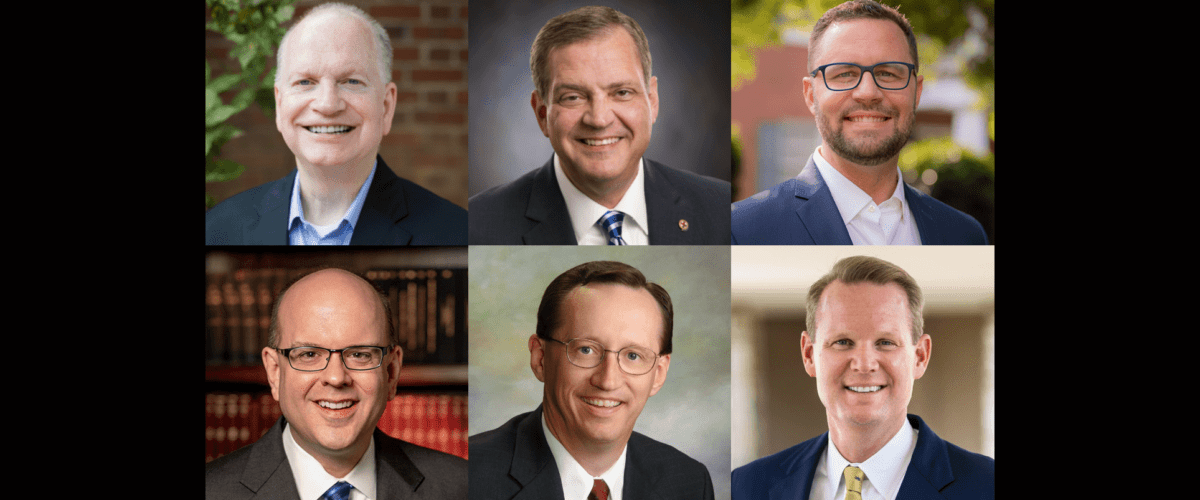Five weeks after the six white presidents of the Southern Baptist Convention’s seminaries ignited a firestorm of protest for their denunciation of Critical Race Theory, they met with a group of Black SBC pastors and didn’t back down.
The result of the meeting, according to a report in Baptist Press, was “honest and open conversation” and hope for further dialogue.
“We believe they heard us. And, we sincerely heard them,” said Marshal Ausberry, president of the National African American Fellowship of the SBC and first vice president of the SBC.
A two-paragraph statement was released late on Friday, Jan. 8, summarizing the three-hour meeting that had been held two days earlier, Jan. 6 — ironically the same day white supremacists and others stormed the U.S. Capitol in an effort to overturn the results of the 2020 presidential election.
That statement said the SBC leaders “spoke candidly and respectfully about our perspectives and concerns” related to Critical Race Theory. “We expressed our love and care for each other, our common commitments to Christ, and also prayed for our nation in this incredibly difficult moment.”
It added: “All of us acknowledge that conversations of this nature should have happened ahead of time. The Council of Seminary Presidents regrets the pain and confusion that resulted from a lack of prior dialogue. Together, all of us are committed to condemn and fight racism in every form, personal and structural, in consistency with the 1995 SBC Resolution on Racial Reconciliation and the Baptist Faith and Message.”
It closed with a declaration of support for “the inerrant word of God and the gospel of Jesus Christ.”
What the statement did not say was that the seminary presidents would in any way revise their outright ban on Critical Race Theory being taught at their schools.
What the statement did not say was that the seminary presidents would in any way revise their outright ban on Critical Race Theory being taught at their schools. Nor did it mention any acknowledgment of systemic racism as a reality.
“The seminary presidents shared the conviction that CRT will not be taught at their seminaries,” Ausberry told Baptist Press. “That’s their role to make those decisions and we can respect that.”
However, Black pastors at the meeting reportedly attempted to explain that some aspects of Critical Race Theory could help educate seminarians about systemic racism.
Frank Williams, senior pastor of Wake-Eden Community Baptist Church in Bronx, N.Y., and vice president of the African American Fellowship, told Baptist Press: “We shared our beliefs and perspectives on CRT. We really pressed into our differences on the usefulness of some aspects of CRT as a tool to help us identify and uncover systemic racism in our society. We differed on that, but what we did not differ on is that systemic racism exists.”
None of the seminary presidents used the phrase “systemic racism,” however, in their response as reported by Baptist Press.
“We are together in our commitment to the Bible as the inerrant word of God.”
Danny Akin, president of Southeastern Baptist Theological Seminary and chairman of the Council of Seminary Presidents, told Baptist Press: “We are together in our commitment to the Bible as the inerrant word of God. We are together in our commitment to be Great Commission Baptists. We are together in our commitment to the Baptist Faith and Message. We are together in our commitment to fight racism in every form, both personal and structural. We are together in our commitment to work better together in the future by listening and talking to one another on a regular basis.”
The report of the meeting did not satisfy one of the seminary’s harshest critics, Dwight McKissic, an Arlington, Texas, pastor and frequent advocate for greater awareness of racism within the SBC.
McKissic’s Twitter feed is full of additional commentary on the SBC, both in original tweets and retweets. On Friday morning, Jan. 8, after the SBC meeting but before the statement release, he tweeted: “The SBC is not a healthy place for AA professors. On the subject of race, they will not be given the freedom to speak their convictions, quote certain sources, or assign certain readings, without Anglo approval.”
On Sunday, Jan. 10, he added a tweet that the “practical impact” of the SBC seminary leaders’ statement on Critical Race Theory “is to metaphorically stick a gun to the head of any AA professor who dares discuss race in a manner than any white SBC person finds unacceptable.”
The Jan. 6 meeting was convened by Ronnie Floyd, president of the SBC Executive Committee, and included officers of the National African American Fellowship of the SBC, presidents of the six seminaries and SBC President J.D. Greear.
Related articles:
Southern Baptists need a vaccine for racism
Could you win a quiz show by defining ‘Critical Race Theory’?
Southwestern president says SBC seminary leaders have been ‘misunderstood’ and ‘misconstrued’
SBC seminary presidents are ‘complicit with evil,’ revered California pastor says
SBC seminary presidents are propagating fear to maintain control | Laura Levens
Is it time for Black Christians to give up on the SBC? | Corrie Shull
How I learned to name my oppression — and my privilege | Meredith Stone
Please listen to my friend Ralph West about racism and the SBC | Joel Gregory


